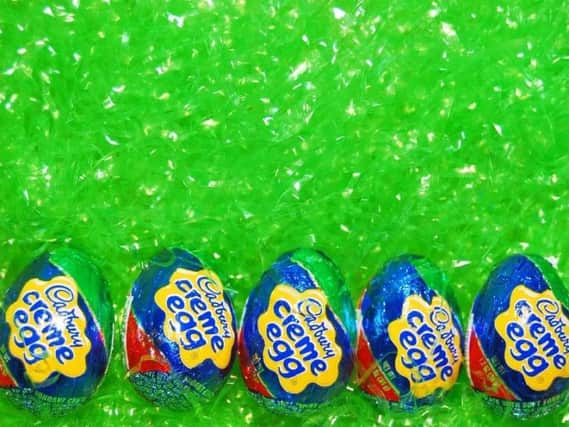How to eat chocolate without piling on the pounds this Easter


Some research studies even claim that certain types of chocolate are a “super food” – something that’s particularly good for us. After all, one of the ingredients of chocolate is cocoa, which is a good source of iron, magnesium, manganese, phosphorous and zinc. But is this really the case?
In dark chocolate – which has a high cocoa level – there is some evidence to show that small amounts may reduce the risk of heart disease. This is because of the presence of flavonoids – a type of plant chemical.
Advertisement
Hide AdAdvertisement
Hide AdFlavonoids are said to be a powerful antioxidant with anti-inflammatory and immune system benefits. Health benefits include better blood sugar control and better insulin sensitivity – which are both indicators of protection from diabetes.
There are, of course, a lot of other foods that contain flavonoids – vegetables, for instance – but maybe they are not as marketable as a bar of dark chocolate.
Other ingredients
But despite this evidence, few neutral studies have been done, and work has only ever been done over the short term.
So before we can say for certain whether chocolate is actually a super food, there need to be far longer trials – that are not funded by chocolate manufacturers.
Advertisement
Hide AdAdvertisement
Hide AdThere is also the issue of the other ingredients apart from cocoa – given that your average Easter egg is likely to contain more sugar and saturated fat than plain cocoa.
There’s also the fact that there is little or no nutritional benefit to standard milk chocolate. So the only reason to eat it is because it gives us pleasure.
But whether it’s dark, milk or white, if you only binge on it once a year, the type of chocolate is not going to make much difference. What matters most is the rest of your lifestyle – what your diets like over the rest of the week, and how much you move around and exercise.
Healthy chocolate?
Maybe instead of worrying about the health benefits of chocolate, we should just see it for what it is – an indulgence or a treat – leaving us to get on with enjoying it occasionally.
Advertisement
Hide AdAdvertisement
Hide AdWith this in mind, we recently conducted an experiment that split people into three groups. The first group consumed a drink which contained calories from sugar only. The second group drank the same beverage but then did some gentle walking. And the third group drank a beverage with the same calories but from protein and a little fat, and not so much sugar.
When we traced everyone’s blood sugar levels over the next two hours, we found that the second and third groups had a much lower spike in blood sugar.
This is a good indicator that gentle exercise after eating or consuming foods which contain a mixture of protein and fat – rather than sugar alone – helps us to maintain steady blood sugar levels.
So maybe rather than worrying about chocolate as an occasional treat you should just enjoy it this Easter – and combine it with a nice spring walk.
Advertisement
Hide AdAdvertisement
Hide AdBecause at the end of the day, Easter is once a year, and your annual chocolate egg is unlikely to make a huge difference to your overall health or weight. So go ahead and enjoy – because that’s what Easter eggs are for. Just take advantage of the bank holiday to go for a walk as well.
This article originally appeared in The Conversation